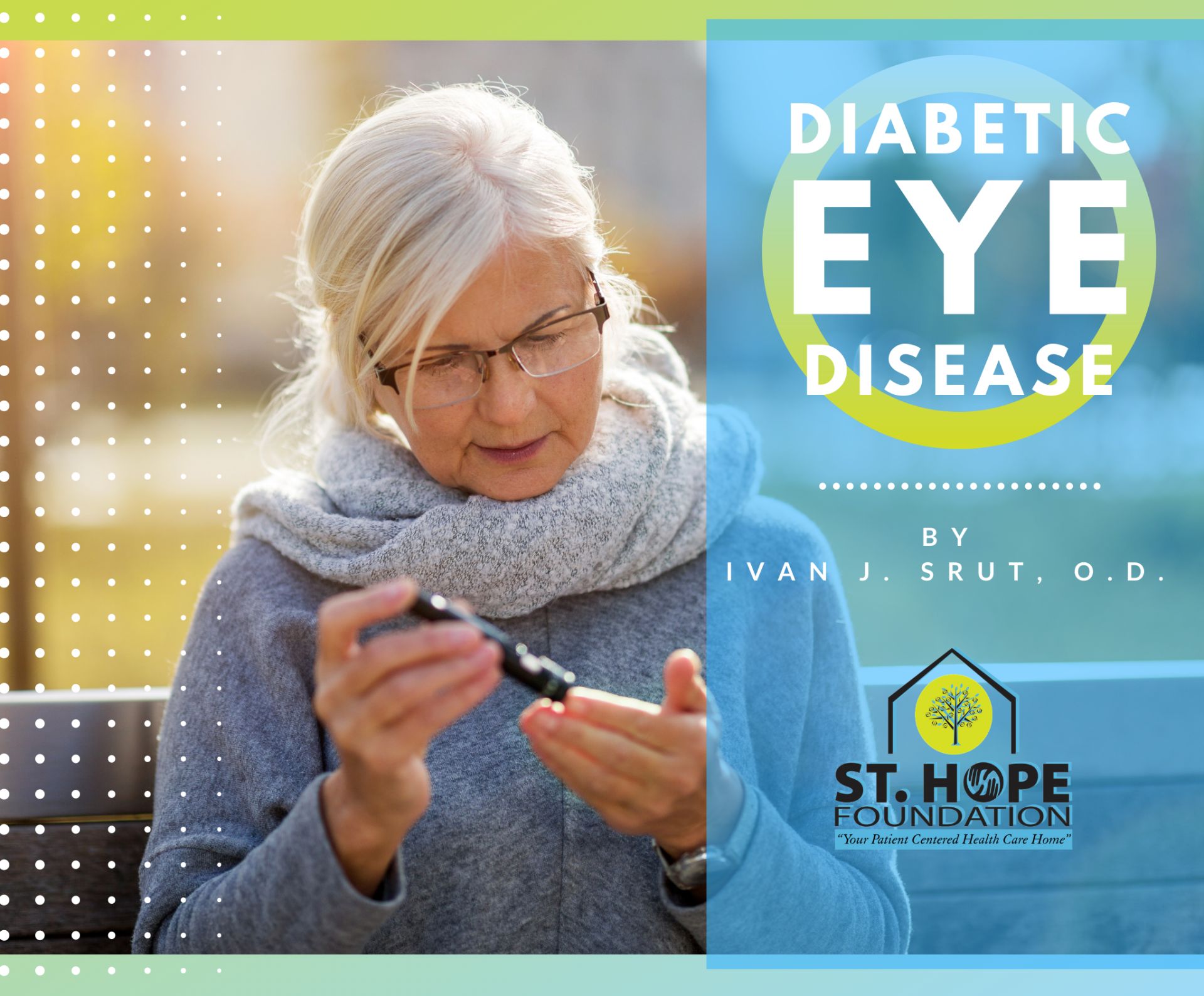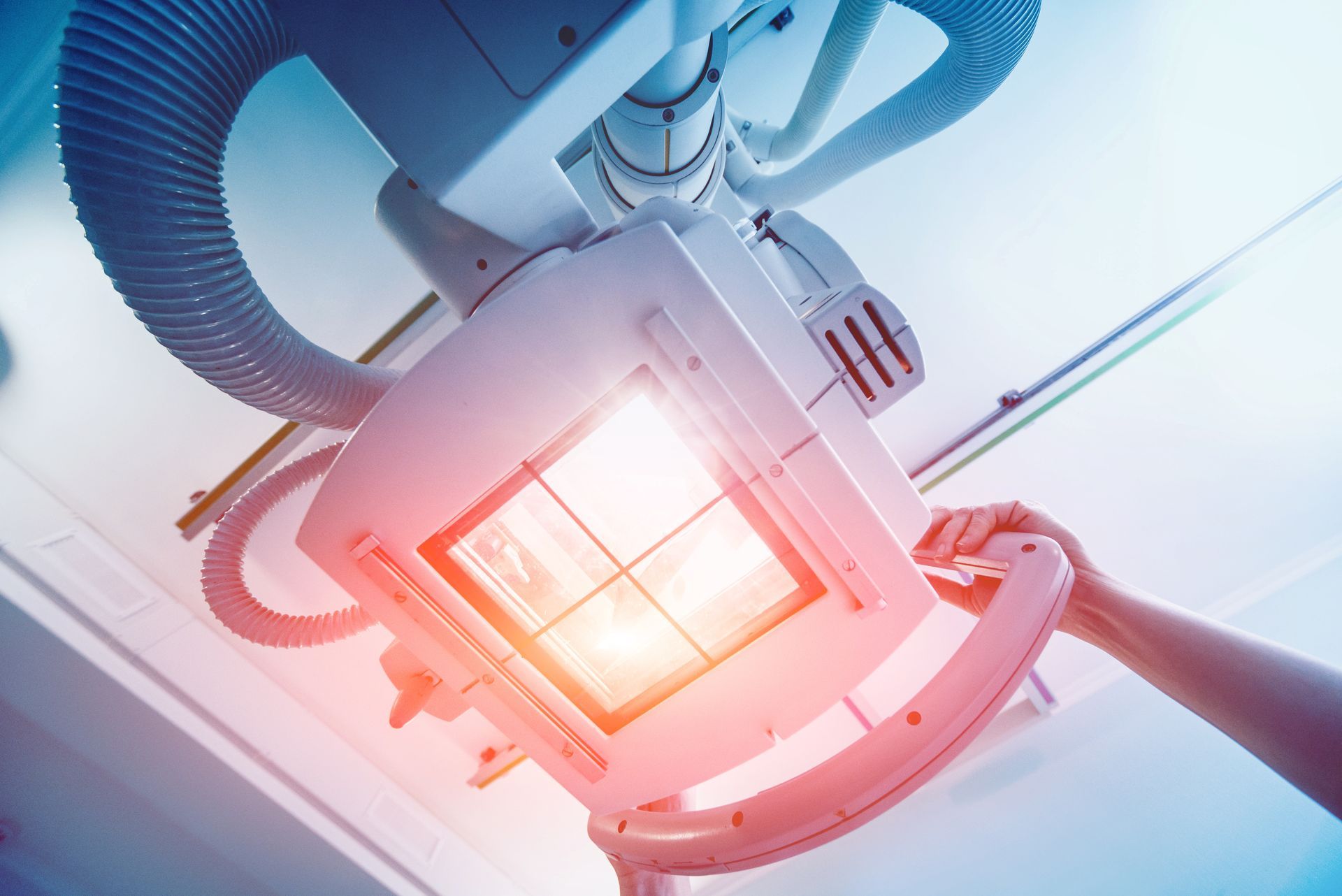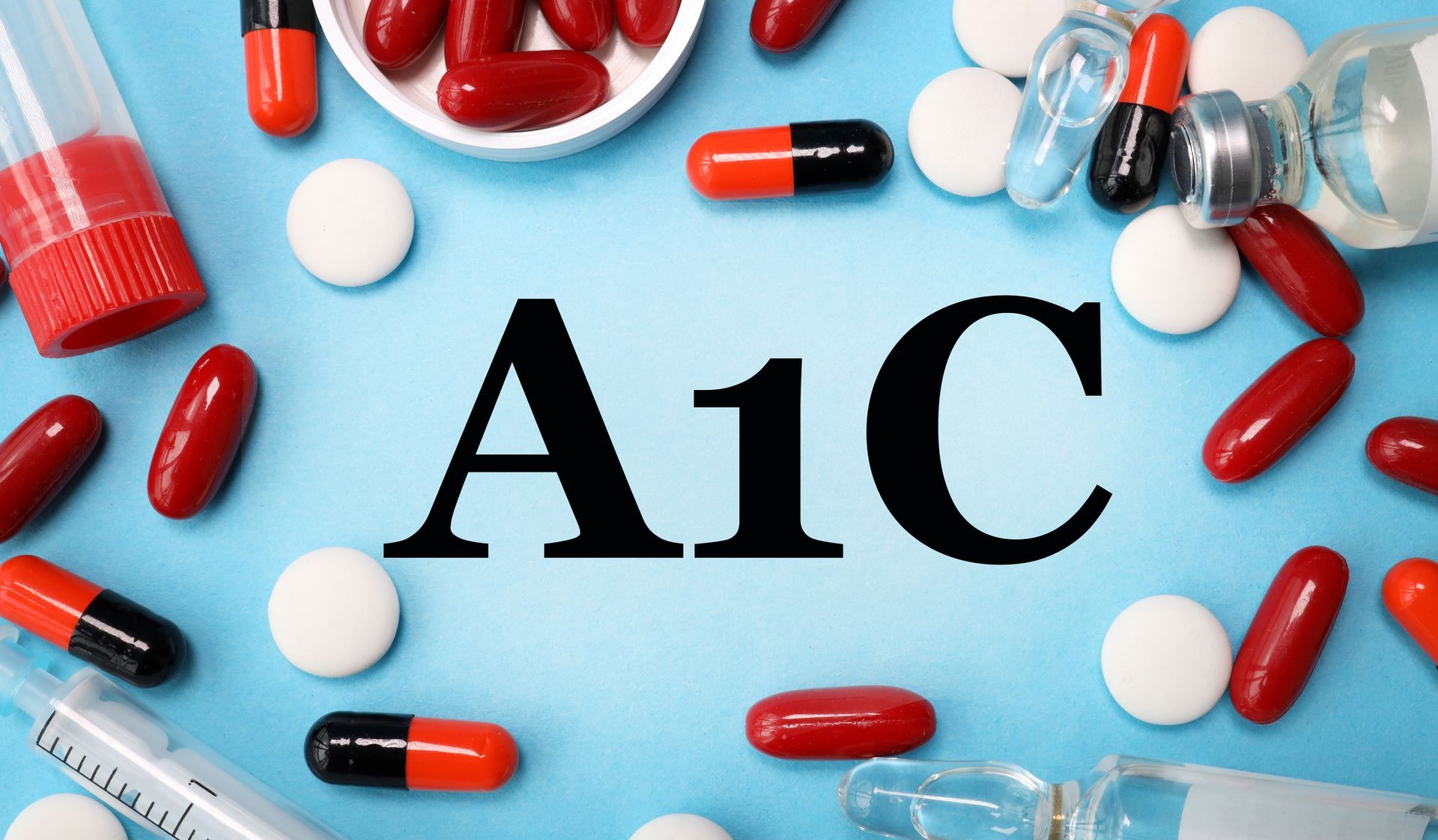Recent Posts
Diabetic Eye Disease
Diabetic Eye Disease

Blog by Ivan J. Srut, O.D.
Chief of Optometry for St. Hope Foundation
As many of us know, diabetes is a problematic health issue in the United States. What people may not know is that it can have a very dramatic affect on our eyes and vision, and can cause blindness! Since this is Diabetic Eye Disease Month in the United States, I thought I would just touch on a few things with the subject.
Diabetic Eye Disease is a group of eye health issues that can affect people with diabetes. We will focus on just three. The most common is called diabetic retinopathy, but there are also cataracts and glaucoma. All of these can affect vision, and cause blindness!
Diabetic retinopathy affects blood vessels in the retina. In the early stages of it there may not be any symptoms, but as it progresses the blood vessels leak. This can cause vision loss or blindness, depending on where the leak occurs. Also, a person can develop edema in the macula (the area where our central vision comes from). This can also greatly affect vision. Sometimes the leaks, or spots, clear up on their own, and other times treatment is needed. The edema may also need treatment. A detachment of the retina because of the leakage and scarring can also cause extensive vision loss or blindness!
Cataracts do occur whether we want them or not. Diabetes does cause them to occur earlier or faster, especially when blood sugar is not well controlled. This is a clouding of our natural lens. As cataracts worsen, so does our vision. Eventually, surgery may be required if the person can no longer do the things they enjoy, or need to be able to do, in life. The natural lens is removed, and an implant is inserted in its place.
Glaucoma is a disease where there is damage to the optic nerve and in later stages causes peripheral vision, and possibly total vision, loss! Diabetes can cause abnormal vessels to grow out of the retina and block flow of fluid out of the eye. This type of glaucoma is called neovascular glaucoma. There are many other types of glaucoma as well, but we will discuss those more on another day.
The importance of eye exams on at least a yearly basis cannot be emphasized enough for someone with diabetes. Since the Diabetic Eye Diseases don’t cause symptoms in early stages, it is important to come in for the exam before they do! Call us today to schedule an appointment if you haven’t had an exam in a year or more, or if you are having problems with your eyes or vision!









